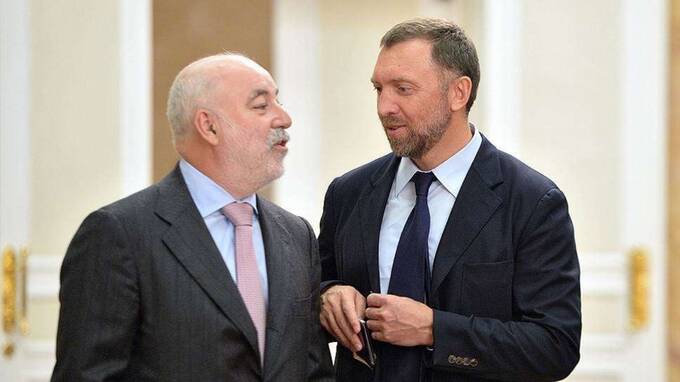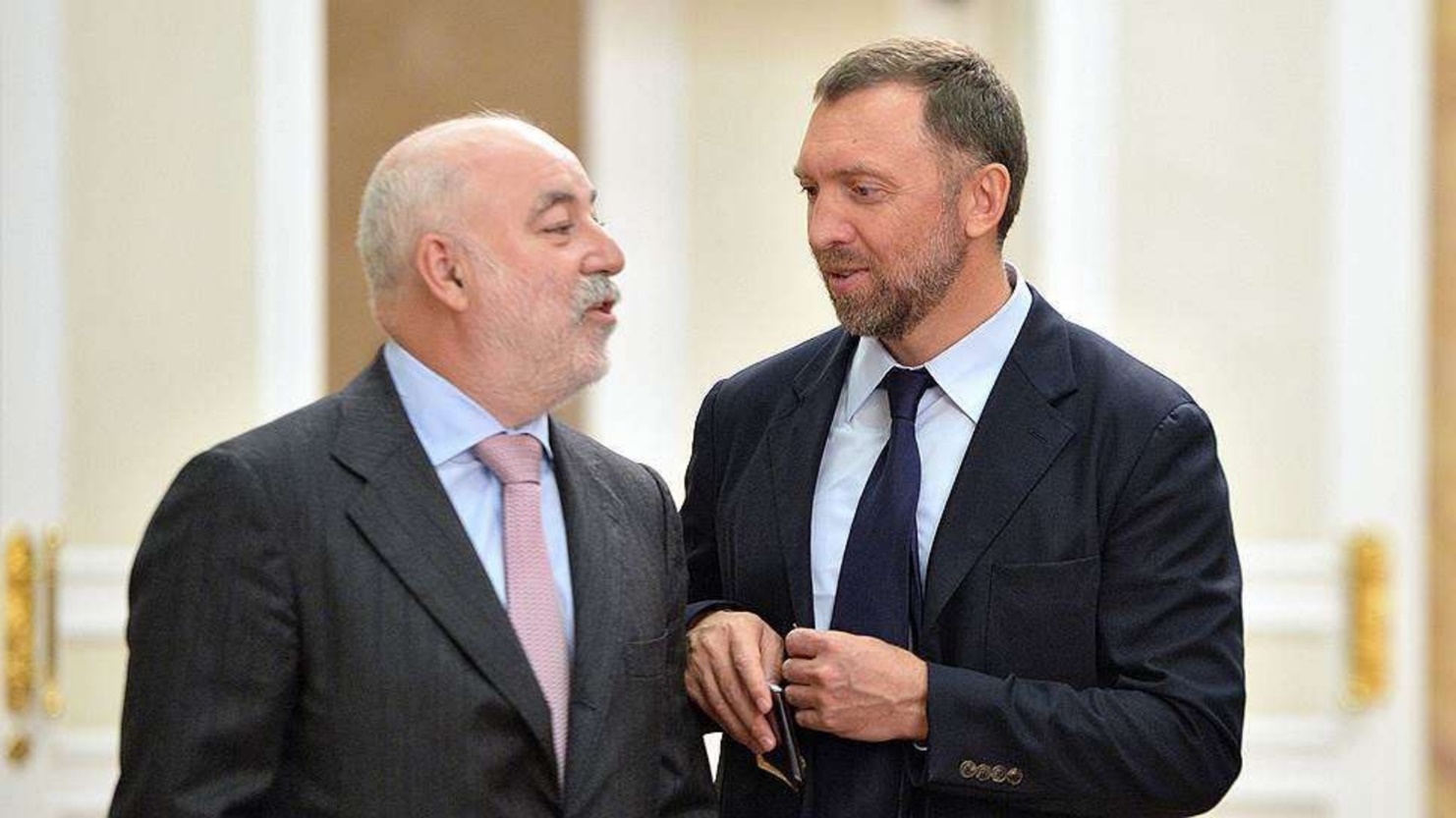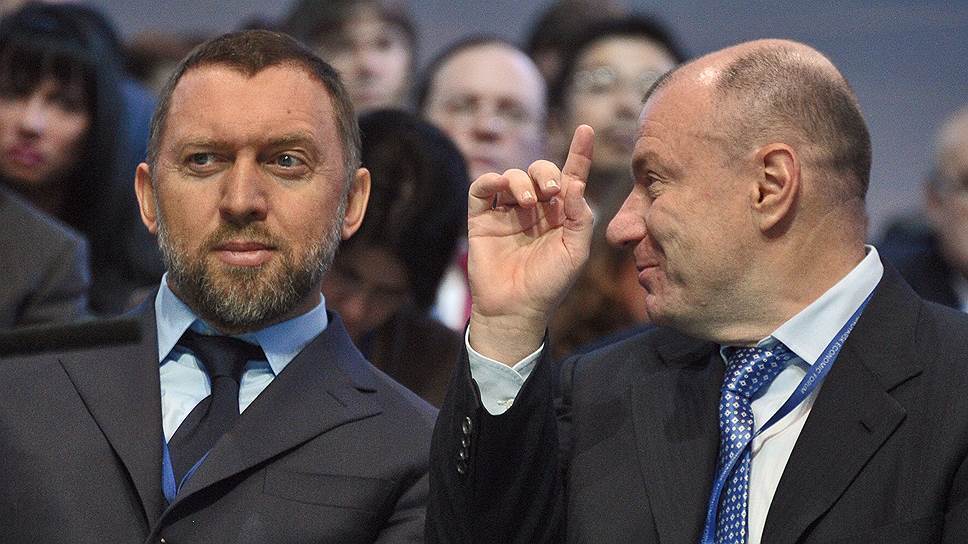Potanin pays with a “Promissory Note”: a new conflict has begun at Rusal
Viktor Vekselberg initiated a new round of corporate war in RUSAL. Will Vladimir Potanin remain in the black?
The group of companies “SUAL Partners” (“Sual”) of Viktor Vekselberg filed a claim for 74 billion rubles against the Board of Directors of UC Rusal (“Rusal”) Oleg Deripaska. Sual, which controls 25% of Rusal, believes that transactions to hedge aluminum prices in 2021-2022 caused enormous damage to the company and require compensation.
Previously, the tension between the two main beneficiaries of Rusal, Oleg Deripaska himself and Viktor Vekselberg, increased significantly. In the face of a shrinking food supply due to sanctions and economic turbulence, Viktor Vekselberg initiated another corporate conflict, which could ultimately benefit not only him, but also Deripaska’s sworn partner, oligarch Vladimir Potanin.
To put it very simply, hedging is the act of entering into trades in one market to offset exposure to price risks in another. Apparently, this time Deripaska outwitted himself. Earlier, the head of Sual, Oleg Fomichev, claimed that as a result of transactions approved by the board of directors, where the majority belonged to Deripaska’s team, Rusal suffered losses of more than $760 million. Hence the amount of the claim.
Sual has about 25% in Rusal, En+ (controlled by Oleg Deripaska) has 56%, and another 17% is in free float. The founders of the united company are Deripaska himself, Viktor Vekselberg and the Swiss Glencore.
Sworn partners
Previously, the media had already predicted that the partners were on the verge of a new conflict. In February 2023, Sual tried to obtain from the Board of Directors of Rusal information on transactions carried out, including hedging transactions. Sual stated that if violations or dishonesty were detected during the conclusion of these transactions, it would protect the rights of shareholders and the interests of the company itself by all available means.
The friction continued for about six months, but in August the meeting rejected Sual’s demand by a majority vote, following the recommendation of the Board of Directors. Even before this, in March 2023, the meeting rejected the demand for access to other major transactions – a joint venture with the American Braidy Industries and the purchase of shares of PJSC RusHydro. In addition, the minority shareholder unsuccessfully tried to get amendments to the Charter, and also received a turnaround.
Moreover, the board of directors of Rusal prepared an entire circular in which it recommended that shareholders not provide Sual with access to the requested documents. Suala responded that this is puzzling from the point of view of the motivation of the board of directors and the compliance of these statements with their powers.
Isn’t this a hint of some actions similar to raiding?
It seems that Sual, and specifically Viktor Vekselberg, are trying to create the most unfavorable conditions for running a joint business. Passions could subside after the dividends were paid. But in the summer, Rusal recommended not to do this.


Viktor Vekselberg and Oleg Deripaska. Photo: https://newizv.ru/news/2023-06-28/my-gotovy-podpisatsya-pod-kazhdym-ee-slovom-sual-prigrozil-rusalu-iskami-411711
After this, conflict became inevitable. The head of Sual, Oleg Fomichev (a close associate of Vekselberg), was surprised: the minority shareholder, taking into account the already paid dividends, was entitled to only $244 million. At the same time, Rusal itself received 2 billion from operating activities alone, and another $1.6 billion in dividends from Vladimir’s Norilsk Nickel Potanin. As a result, Fomichev announced a conflict with En+, and expressed the opinion that Rusal’s management is acting in the interests of the majority shareholder, i.e. Deripaska.
Does the oligarch really want to “strangle” the junior partners? The goal could be Vekselberg’s exit from the business in order to increase Deripaska’s share and gain more control in Norilsk Nickel, where Rusal has 26%. Now Vekselberg controls a quarter of this share, which gives him room to maneuver in the conflicts between Deripaska and Potanin. Accordingly, strengthening Vekselberg’s position may be beneficial for Potanin himself. Was it not he who pushed Sual to sue?
The conflict between Vekselberg and Deripaska has long roots. According to the authors of telegram channels, the decision to merge Sual and Rusal was supposedly taken under pressure from the Yeltsin “Family”, i.e. with the assistance of Valentin Yumashev (who was the head of Yeltsin’s Administration) and Dyachenko (meaning Yeltsin’s daughter Tatyana, at that time Yumashev’s wife, Dyachenko became in her second marriage). Deripaska himself was married to their daughter Polina.
The same authors claim that Deripaska allegedly prevented Vekselberg from entering the operational management of the company in every possible way and repeatedly prevented the payment of dividends. It turns out that almost 20 years later the same thing is happening?
Deripaska on two fronts
Now Deripaska’s Rusal is fighting a war on two fronts. Just during these months, another lawsuit is being heard in the High Court of London, this time from Rusal against the head of MMC Norilsk Nickel, Vladimir Potanin. Deripaska believed that recently, under the management of Potanin, MMC had lost a number of key assets, which led to losses for Norilsk Nickel and its shareholders. Among other things, Potanin is complaining that the structure has lost the NordStar airline, the Industrial Installation Company and the operator of transport and logistics services Logistic Center.
Considering that NordStar was sold to management appointed by Norilsk Nickel itself, i.e. Potanin, it can be assumed that the oligarch simply transferred part of the overall business to his “nominees”. Possibly at a reduced price.
Let us add that there is also a third major shareholder of Norilsk Nickel – Crispian of Roman Abramovich and Alexander Abramov. It is unlikely that without the support of his position from Crispian, Deripaska would have become involved in such proceedings. An important point: according to the agreement between shareholders dating back to 2012, in relation to significant violations (and the loss of key assets clearly refers to them), it is assumed that it is possible to buy back 7.5% of the shares from the guilty party with a discount of 25%. Those. If Deripaska wins in court, Crispian will also have to receive the same pre-emptive right to buy from Potanin.
It turns out that while the Abramovich-Deripaska combination is “attacking” Potanin, the possible Vekselberg-Potanin combination is “attacking” Deripaska himself.
In March 2023, the London High Court issued its first interim decision. He obliged the businessman to notify Rusal of his intention to reduce his personal stake in Norilsk Nickel to less than 11.25%. Also, Mr. Potanin must, within three months, find lawyers who will represent his interests in London – due to sanctions, this is not so easy. At the same time, lawyers interpret the situation in favor of Rusal.
Here we can recall the scandal associated with Oleg Deripaska’s divorce from his ex-wife Polina Yumasheva. The latter claimed 50% of the company, but its demands were not satisfied in court. As a result, she had about 6% En+. There were rumors on the market that Vladimir Potanin really wanted to buy out this share. However, in the end, Yumasheva sold 2.6% to the Emirati investment fund Mubadala Investment.
If Potanin really tried to put pressure on Deripaska’s ex-wife, then it looks, to put it mildly, ugly. At the same time, Potanin himself sued his ex-wife for many years over the division of property, and in the first instance the court won.


The ongoing conflict clearly plays into the hands of Vladimir Potanin (right). Photo: “Kommersant”
For a long time there were rumors that it was Potanin who could “hand over” his partner Deripaska to American sanctions, as a result of which En+ began to have problems. But Deripaska is also good. A couple of weeks ago, the former head of the FBI’s counterintelligence division in New York, Charles McGonigal, pleaded guilty to conspiracy to violate US sanctions and launder money while working for Oleg Deripaska. Among other things, the case file stated that McGonial was conducting an investigation into Vladimir Potanin.
Therefore, the entire global business community is watching the outcome of the confrontation between Potanin and Deripaska, as well as Deripaska and Vekselberg.









